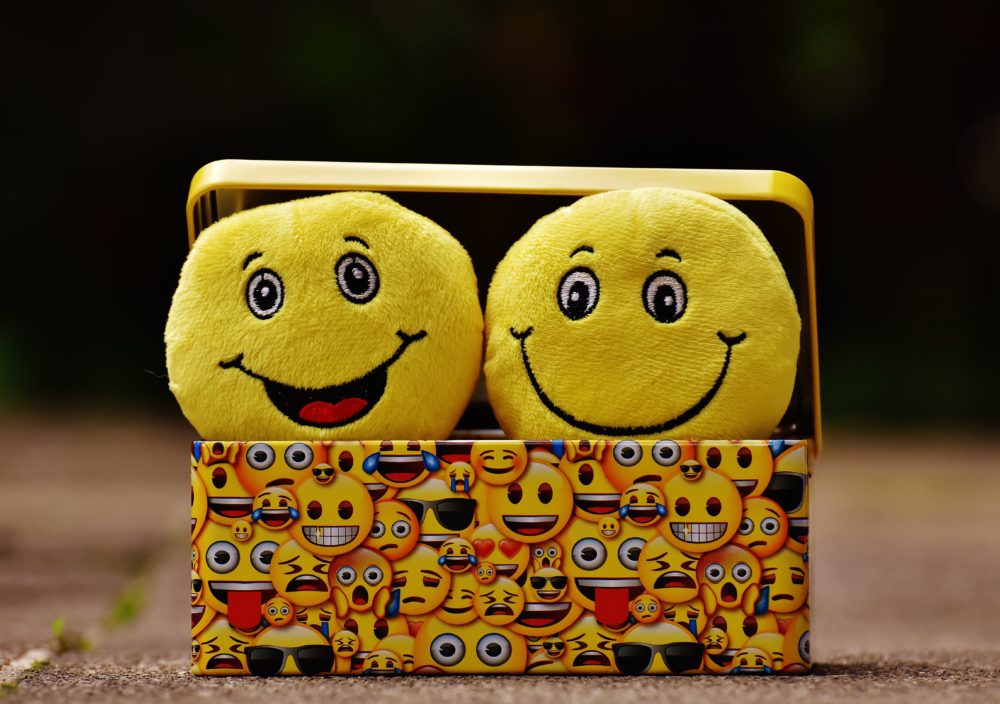[social_warfare]

Last article, we talked about the myth of the rational investor. Somewhere along the way, we got the idea that we can repress our emotions and we would be better for it.
We think that just because we experience emotions, that we are bound to make bad money decisions. But what if I told you that you had this all wrong?
In this article, I go over some findings from Harvard Psychologist Susan David, on how we can make the most of our emotions and not get hijacked by them. She details a lot of her findings in the book Emotional Agility. I’ve provided a brief outline here.
Accept We have Feelings
There are no good or bad emotions. We have them because they evolved to help us make decisions. So instead of trying to curb them, we can allow ourselves to feel them and learn why they are here at a certain time.
I grew up in a household that children were not allowed to show a lot of emotions. Crying must be stopped, we mustn’t be angry. We had to smile and act happy. Parents too. We had to be the picture of the Norman Rockwell painting. Happy, a well-adjusted family having dinner.
It was years, no, decades later before I came to accept that I will have the full spectrum of feelings and not to be scared or ashamed of them.
Distinguish Ourselves from Our Emotions
This brings up another point. We are not our emotions. We “have” emotions. It’s the difference between saying “I am sad” and saying “I feel sad”. The first statement implies that sadness is a state that we are in all the time. That it’s our identity. The second statement acknowledges that it’s a feeling that is affecting us right now.
One of the things we do know intuitively is that feelings are fleeting. We want to make a feeling last forever or to recapture an emotion. It’s because we know that feelings are temporary.
This is why it’s ok to have a particular feeling. It’s not going to last and it doesn’t define who we are. It comes and goes.
Come to think of it, this train of thought applies to money as well. We are not our bank accounts. We are not the numbers in our investment portfolio. These are things we “have”. They don’t define us.
Emotions are Data
We are constantly getting streams of information from our senses. We smell the flowers or the grass, we feel a breeze on our skin. We hear the ticking of the clock. Our emotions are just another one of those streams of information.
We can check in with them as we check the weather outside. The information helps us make the decision if we want to move forward or not. To bring a jacket or not.
So to repress our emotions or to ignore them is to intentionally ignore a piece of valuable information. Like purposely not checking if your flight is on-time or not looking at the price tag before going up to the cash.
Yes, sometimes emotions seem like they are telling us to behave in a certain way; run away from this, get into this argument. We all know that the flight-or-fight instinct is what helped our ancestors survive. But again, that is just information.
An amber light.
Reaction vs Response
This distinction was a revelation to me. Reactions are like muscle memory. We have come to learn that after “A” we should do “B”. This is the classic psychological “conditioning”.
But sometimes, what we learned to do is counter-productive. It’s like when I was learning how to play the piano. I learned that this note followed this one and where my fingers should be on the keyboard. But sometimes I would learn it wrong for whatever reason. And then I kept making the same mistake because my muscle memory was just used to it.
That muscle memory is our reaction.
We assume that between stimulus and reaction there is only an automatic function. Like that wrong note that I kept playing.
As the preeminent Doctor Viktor Frankl notes,
“Between stimulus and response, there is a space. In that space is our power to choose our response. In our response lies our growth and our freedom.”
Ok, my piano key might be trivial next to this quote, but in order for me to be a better player, I had to choose to make another response.
This is the same for much of our feelings. In order for us to grow and not be a slave to our emotions, we have to make another choice. To give ourselves that space between a feeling (stimulus) and an action (response).
Pinpoint the Emotion
Ok, so how do we create that space? We do it not by repressing or denying the emotion. Instead, we should recognize and name the emotion. This helps to de-escalate the power of that feeling. It lets us step back from the ledge.
In fMRI research, when subjects are shown a picture that elicits an emotion, either happiness, anger, sadness etc. We see a certain part of the brain called the Amygdala light up. But when the subjects are asked to identify that emotion, as soon as they say it, the activity in that part of the Amygdala shuts off and is no longer lighting up the fMRI image.
By identifying the emotion, it didn’t make it go away, but it made it less intense. By making it less intense, it gives us that space.
It happens every time. It’s not a coincidence, it’s neuroscience.
This is a neat little life hack for all of us. By knowing this, we can prevent feelings from hijacking our brain. We can stop ourselves from picking that fight with our spouse. We can stop ourselves from panic selling a stock. We can stop ourselves from buying something out of FOMO.
Identity and Decisions
Now that we have created that space, what should we do with it? The reason we didn’t want to be hijacked was to prevent ourselves from making bad decisions.
So how do we make good decisions with our emotions?
We have to think about who do we want to be in this circumstance. So our feelings don’t define us. We get to define us.
Sometimes we get too attached to a particular stock, maybe because we like the product that the company makes. This makes us ignore information that doesn’t match up to our image of it. In this situation, who do we want to be?
Do we want to be the stubborn person that can’t admit they are wrong? Or do we want to be the person that can accept new information?
Illustrated Conclusion
I’ll conclude with an example so you can see how this affects our biggest investment; our careers.
Something happens at work that I feel angry about. I’m not defined by my anger, I’m not the Hulk. My anger is telling me something. Usually, anger is a sign that a boundary has been crossed. So that’s the information I need to go identify what boundary has been crossed and by whom.
A colleague has been passing my work off as their own. Of course, I feel angry. I also feel a deep sense of injustice. I feel these things and I have a right to feel it.
Once I have named that anger and that injustice, I have created some space. I can think, ok, who am I? Who do I want to be? What are my values in this case?
Do I want to be someone who gets into a finger-pointing drama? Do I want to yell at my colleague? Would that help my reputation at work? I value my career and I value my reputation. I want to be seen as a leader and yelling certaintly wouldn’t help me. I also value justice. I don’t think others can just steal my work. So what do I do?
Well, in this space, I have the freedom to choose.

